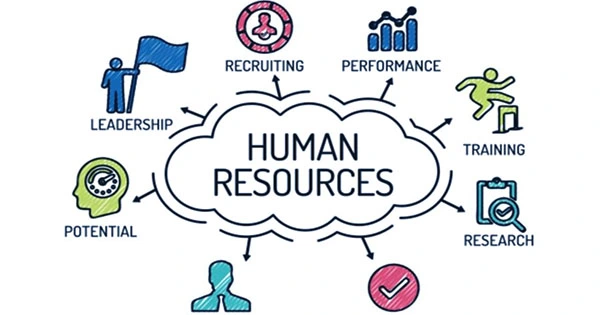Human resource management (HRM) is the process of hiring individuals, providing them with the necessary training and compensation, creating policies pertaining to them, and creating retention plans. Over the past 20 years, HRM has undergone a great deal of development as a field, making it even more crucial in today’s enterprises. HRM used to be more of an administrative function than a strategic one that was essential to the organization’s performance. It involved processing payroll, sending birthday gifts to employees, planning company outings, and ensuring sure forms were accurately filled out. Get out of the celebrations, birthdays, and enrollment forms, advises management guru and former General Electric CEO Jack Welch, summarizing the new function of HRM. Keep in mind that HR is defined in difficult times and crucial in good times (Frasch, et. al., 2010).
At the outset of this article, it is important to emphasize that every manager has a responsibility in human resource management. Even though we do not hold the title of HR manager, we still carry out all or at least some of the HRM duties. For instance, the majority of managers deal with employee compensation, motivation, and retention, which means that these issues fall under both management and HRM. As a result, both those who will manage a firm and those who aspire to become HR managers should read this book.
Budget Control: The human resources division devises strategies for reducing personnel management expenses, which helps to rein in wasteful expenditure and ultimately saves the business money. These strategies might involve haggling for lower prices on employee benefits like health insurance. In order to make sure that the company’s pay is reasonable and competitive, the HR department also researches and analyzes employment trends, the labor market, and salaries depending on job functions. This job of the HR department is especially beneficial for small organizations because some of them have stringent budgets which they must follow.
Employee Satisfaction: For better or worse, it is the HR department’s role to ascertain if employees are happy with their jobs, their supervisors, and other relevant responsibilities. In order to ascertain how the business can advance in relation to its employees, HR specialists must carefully design employee surveys, supervise focus groups, and implement an exit interview strategy. This is because it can be challenging to measure satisfaction because it is, at best, an ambiguous measurement. In other words, to improve morale and motivation across the organization, the HR department identifies the causes and/or reasons for employee unhappiness for current or former employees and tackles those issues in the best way possible.
Training and Development: Specialists in human resources conduct evaluations of the workforce to ascertain the level of education and expertise needed to carry out jobs effectively and efficiently. Even while it’s crucial to make sure that every employee is qualified and equipped to handle the demands of a job, evaluating existing employee training needs can be especially helpful for startups and organizations that are growing. Because it is less expensive for these professionals to manage training and development than it is to employ more qualified candidates or extra personnel, businesses frequently assign this obligation to the HR department. This tactic may also increase staff retention, which would lower turnover.
Conflict Resolution: Regardless of how content individuals are with their jobs, employers, and coworkers, disagreements will inevitably arise at work. Arguments and conflicts are inevitable given the variety of job preferences, personalities, degrees of expertise, and backgrounds among employees. These disagreements between a manager and employee or between two employees can be identified and resolved by an HR manager or expert who has been specially trained to handle employee relations, effectively restoring positive working relationships throughout the firm. Additionally, being able to settle disputes may boost workplace morale and employee satisfaction.
Performance Improvement: The creation of performance management systems is another duty held by the HR division. Employees risk being placed in positions that are not a good fit for their experience and talents if a human resources specialist doesn’t create a plan that measures employee performance. Employee unhappiness may increase as a result, and those who persistently perform below the employer’s expectations for performance may sneak into the payroll, costing the business money on underwhelming workers who do not contribute to the success of the organization.
There are at least five reasons why human resources are crucial for corporate success, including boosting employee morale, creating strategies to achieve high-performance standards, resolving employee problems, and ensuring a company stays within its budget.
















